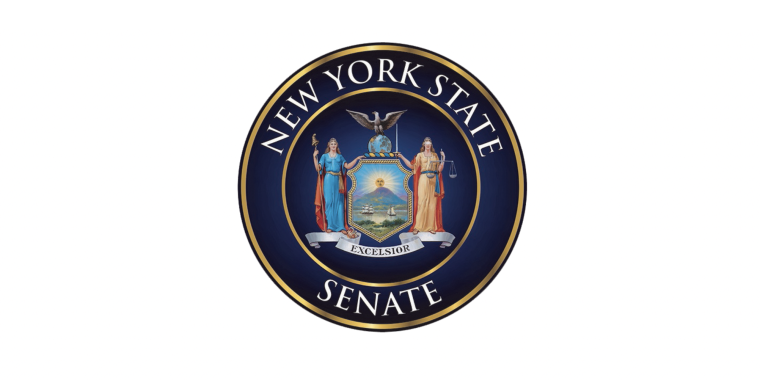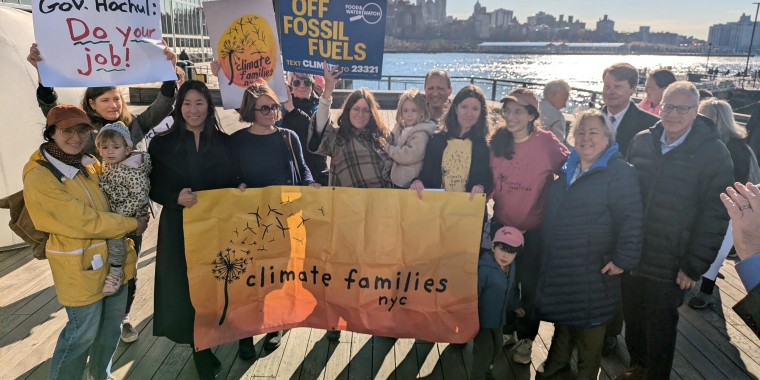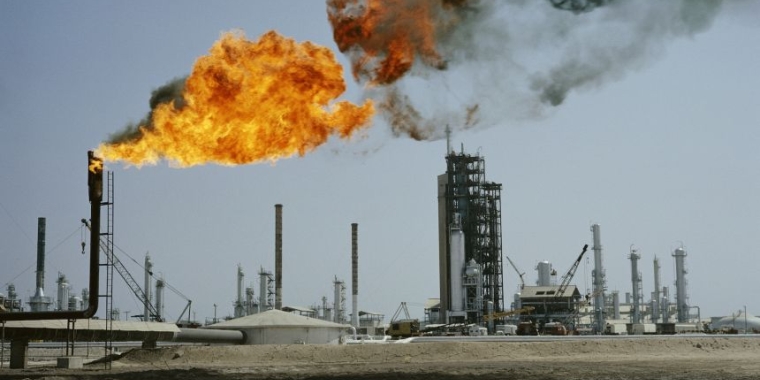
Krueger, Sierra Club, Elected Officials Urge Governor To Phase Out Coal By 2020
November 23, 2015

NEW YORK – Senators, Assemblymembers, and City Council Members came together today at a City Hall press conference to urge Governor Cuomo to commit to transitioning New York off of coal-fired power by 2020 in advance of the international climate talks in Paris, slated to begin November 30th. The event was hosted by State Senator Liz Krueger and the Sierra Club and featured elected officials including Assemblymembers Brian Kavanagh, Jo Anne Simon and Rebecca Seawright, and Council Members Donovan Richards and Ben Kallos, along with around 100 community members.
The press conference comes after a speech given early last month at Columbia University where Governor Cuomo stood alongside former Vice President Al Gore and reaffirmed New York’s commitment to reduce carbon emissions 40 percent by 2030. During that conference, the Governorsignaled that New York was ready to phase out coal-fired power in the state — a first since he took office. Today, New York’s coal-fired power plants make up 13 percent of the carbon emissions in the state, and a commitment to phase out those plants is an essential next step toward meeting his climate pollution reduction goal.
“As the international climate negotiations in Paris near, the Governor can put his words into action and commit this year to phasing out coal in New York by the end of the decade. A commitment to phasing out coal in New York will not only reduce dangerous climate pollution, but will also position New York as a national leader in harnessing the environmental and economic benefits provided by a forward-thinking renewable energy economy,” Lisa Dix, Senior Representative of the New York Beyond Coal campaign for the Sierra Club said. “The governor is on the right path to transform our economy with clean energy programs like REV, the Clean Energy Fund and an enforceable renewable energy target to source 50 percent of electric energy from renewables by 2030, but that's only half of the solution — phasing in renewable energy is not sufficient to achieve aggressive carbon reductions. Bold action is also required to phase out dirty energy.”
To date, New York’s ageing, dirty and uneconomical coal-fired power plants have received millions of dollars in subsidies paid for by New York electricity customers. The Cayuga coal plant, for example, has been receiving bailout money from New Yorkers since 2013 and has recently asked for another $145 million bailout to continue operating, even when transmission upgrades would provide a safe and reliable solution for a fraction of the cost to electric customers and the plant could be responsibly retired. Meanwhile in August, NRG Energy announced they would be retiring their Huntley coal plant and mothballing the Dunkirk coal plant, both of which have been unable to turn a profit, even with millions of dollars in out-of-market subsidies. Both the New York Independent System Operator (NYISO) and the utility National Grid confirmed that neither plant is needed to keep the lights on and both plants now have the green light to be responsibly retired.
"The state is currently sending the wrong market signals – that we will continue to support dirty and uneconomical coal plants on the backs of New York families and businesses.” State Senator Liz Krueger said. “Propping up coal is exactly the opposite of what we need to be doing to meet the Governor’s laudable emissions reduction goals. I urge the Governor to lead New York into the energy future by making a firm commitment to end coal-fired power by 2020."
A transition off of coal would save New Yorkers money, help safeguard the community’s air and water and allow Governor Cuomo to reach his goal of 40 percent carbon emission reductions by 2030.Governor Cuomo has already taken a strong first step towards a clean energy future with his Reforming the Energy Vision (REV) plan and his proposed Clean Energy Fund. Both of these programs have the potential to chart a course towards a future that positions New York as a national leader in the transition to renewable energy. But groups contend that these transformative goals for the state’s energy future would be undermined by keeping coal on life support with electricity customers dollars.
"New York has been taking meaningful steps toward ambitious goals to reduce climate changing pollution and invest in conservation and clean, reliable energy," Assemblymember Brian Kavanagh, who chairs the bipartisan New York State Caucus of Environmental Legislators said. "However, our efforts will be undermined unless we do everything feasible to move away from burning fossil fuels, especially coal. Our existing coal plants are expensive, dirty, and unnecessary, and should be phased out as soon as possible in a way that supports the communities in which they're located."
At today’s press conference, the speakers urged Governor Cuomo to commit to phasing out the remaining coal-fired plants in the state, ending expensive coal bailouts, and providing the necessary glide path to ease the burden for coal-affected communities. There is strong public and political support for a responsible transition for coal-impacted communities and increasingly little public or political support for continued coal bailouts. Earlier this year, more than one-third of the state Legislature signed a letter urging Governor Cuomo to end coal bailouts and create a statewide transition plan for coal dependent communities.
Additionally, provided are two links for published opinion editorials in the Gotham Gazette from State Senator Liz Krueger and the Albany Times Union from Lisa Dix from the Beyond Coal campaign urging Governor Cuomo to phase out coal in New York: http://www.gothamgazette.com/index.php/opinion/6004-time-for-new-york-to-cut-the-coal,
http://www.timesunion.com/tuplus-opinion/article/Commentary-Cuomo-commit-to-phasing-out-6634597.php.
###
Share this Article or Press Release
Newsroom
Go to NewsroomLegislature Announces 2025 Joint Legislative Budget Hearing Schedule
January 22, 2025

Senator Krueger's December 2024 Update
December 26, 2024

